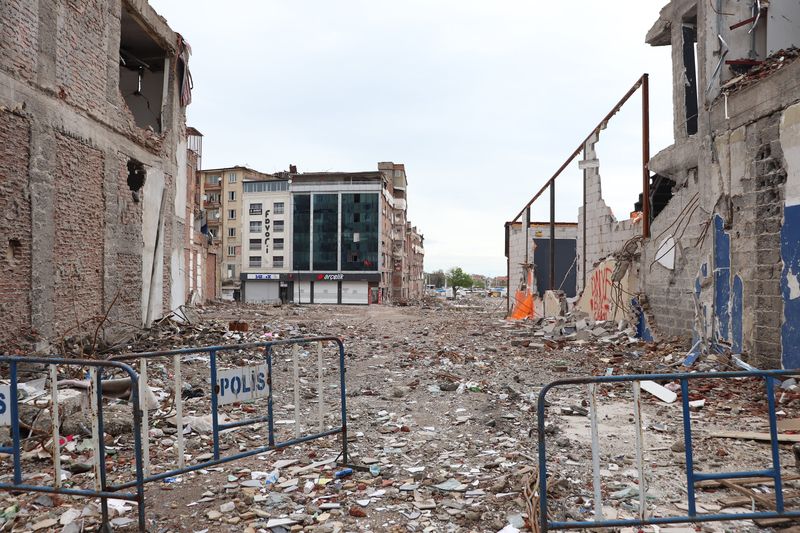Jamaica Shaken by 5.4 Magnitude Quake: A Look at the Environmental Impact
Overview
On October 30, 2023, a earthquake measuring 5.4 on the Richter scale struck near Hope Bay, Jamaica. The earthquake, centered at a depth of 10 kilometers, caused intense shaking in parts of the country. Initial reports indicate that there were no immediate signs of serious damage, although the full extent of the impact is yet to be assessed. Prime Minister Andrew Holness took to social media to express his concern for the well-being of the people and to assure that the government is closely monitoring the situation. While Jamaica has experienced earthquakes in the past, this recent event highlights the vulnerability of the nation’s infrastructure and the importance of preparedness in the face of natural disasters.
Environmental Impact Assessment
It is crucial to conduct a thorough impact assessment to understand the extent of the environmental damage caused by the earthquake. This assessment should take into account factors such as soil liquefaction, landslides, and potential damage to infrastructure and ecosystems. It is also important to consider the long-term effects on the island’s ecosystem, especially in relation to coastal areas and marine life.
Soil Liquefaction
Soil liquefaction occurs when saturated soil loses its strength and behaves like a liquid during an earthquake. This phenomenon can lead to the sinking of buildings and infrastructure, posing a significant risk to human life. A thorough examination of the affected areas is required to determine if soil liquefaction has occurred and to take appropriate measures to mitigate any future risk.
Landslides
Jamaica‘s mountainous terrain makes it susceptible to landslides during earthquakes. The shaking of the ground can trigger the displacement of soil and rocks, potentially blocking roads, damaging infrastructure, and endangering lives. It is essential to assess the stability of slopes and implement measures such as reinforcing slopes, diverting water channels, and planting vegetation to prevent future landslides.
Infrastructure and Ecosystem Damage
The earthquake could have caused damage to infrastructure such as buildings, roads, and bridges. A thorough inspection is necessary to identify any structural weaknesses or potential risks. Additionally, the impact on ecosystems and biodiversity should be assessed, particularly in coastal areas where coral reefs and marine life may have been affected. Understanding the environmental repercussions of the earthquake will inform future efforts in reconstruction and resilience building.
Philosophical Discussion: Nature’s Power and Human Resilience
Natural disasters serve as a reminder of the power and unpredictability of nature. Earthquakes, hurricanes, and other such events remind us that despite the technological advances we have made, we are still subject to the whims of the Earth. However, they also highlight the resilience and determination of human beings to come together, support each other, and rebuild.
This earthquake in Jamaica underscores the importance of disaster preparedness and resiliency in communities. Governments and individuals must invest in infrastructure that is designed to withstand the forces of nature and prioritize disaster response plans. Additionally, education and public awareness campaigns can help equip individuals with the knowledge and skills to protect themselves and their communities in times of crisis.
Editorial
The earthquake in Jamaica serves as a wake-up call for the government and citizens alike to prioritize disaster preparedness and resilience-building efforts. As climate change continues to intensify the frequency and severity of natural disasters, it is essential that countries take proactive measures to ensure the safety and well-being of their citizens.
Investment in resilient infrastructure, early warning systems, and public education are critical components of a comprehensive disaster preparedness strategy. Proper zoning regulations and land-use planning should be implemented to minimize risks and protect vulnerable areas. Additionally, international cooperation and knowledge-sharing can play a crucial role in supporting countries like Jamaica that face significant challenges in building resilience.
Advice
In the aftermath of this earthquake, it is important for individuals and communities in Jamaica to prioritize safety and take necessary precautions. This includes conducting thorough inspections of homes and buildings for any structural damage and following the guidance provided by local authorities. It is also recommended to stay updated on official announcements and to seek assistance if needed.
Furthermore, citizens should engage in preparedness activities such as creating emergency kits, developing family communication plans, and being aware of evacuation routes. By taking proactive measures, individuals can contribute to their own safety and the resilience of their communities in the face of future natural disasters.
In conclusion, the earthquake in Jamaica serves as a reminder of the environmental vulnerabilities faced by countries around the world. It is crucial for governments, communities, and individuals to prioritize disaster preparedness, invest in resilient infrastructure, and foster a culture of resilience in order to mitigate the impact of natural disasters and protect the well-being of their citizens.

<< photo by Serkan Gönültaş >>
The image is for illustrative purposes only and does not depict the actual situation.
You might want to read !
- Enhancing Emergency Response: Manitoba Conservation Officers Integrated with 911 Dispatch System
- Devastating Windstorm Knocks Out Power for Nearly 100,000 Canadians
- After Devastating Acapulco, Category 5 Hurricane Otis Weakens in Southern Mexico: A Look at the Aftermath
- Preview: USMNT Gearing Up to Take on Ghana with Exciting Starting XI and Lineup Notes – Kickoff Time Revealed
- Mexico and Germany Share Spoils in Thrilling 2-2 Draw in Front of Record-Breaking Crowd
- Get Ready to Watch the World Cup 2023 Warm-Up Fixtures: Your Comprehensive Guide
- Prince George Blast: Assessing the Impact and Seeking Answers
- Double Trouble: Twin Hurricane Warnings Threaten Caribbean and Mexico
- Shaking Things Up: Exploring Canada’s Recent 3.4-Magnitude Earthquake
- Did you feel it? Minor earthquake rattles Montreal region
- Earthquake Strikes Montreal Region: Shaking Up the Status Quo




